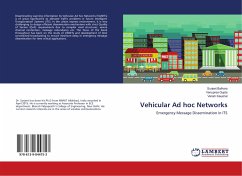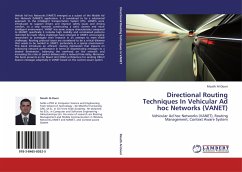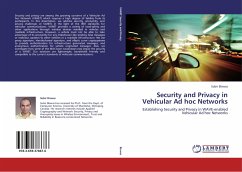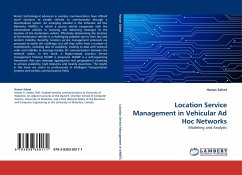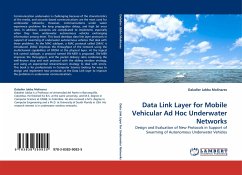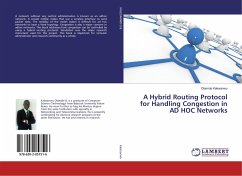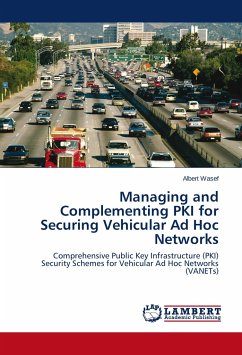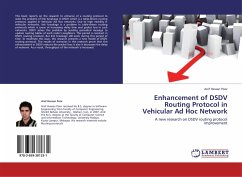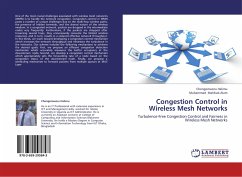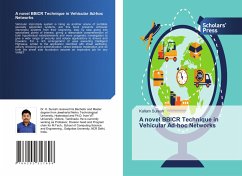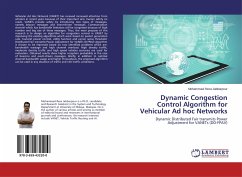
Dynamic Congestion Control Algorithm for Vehicular Ad hoc Networks
Dynamic Distributed Fair transmits Power Adjustment for VANETs (DD-FPAV)
Versandkostenfrei!
Versandfertig in 6-10 Tagen
27,99 €
inkl. MwSt.

PAYBACK Punkte
14 °P sammeln!
Vehicular Ad Hoc Network (VANET) has received increased attention from scholars in recent years because of their important aim, human safety on roads. VANETs provide safety by introducing two types of messages, namely beacon messages and event-driven messages. Communication channel which has bandwidth limitation will be congested because of high number and big size of these messages. Thus, the main propose of this research is to design an algorithm for congestion control in VANET by improving the existing algorithms which work based on packet generation rate, transmit power control, utility fu...
Vehicular Ad Hoc Network (VANET) has received increased attention from scholars in recent years because of their important aim, human safety on roads. VANETs provide safety by introducing two types of messages, namely beacon messages and event-driven messages. Communication channel which has bandwidth limitation will be congested because of high number and big size of these messages. Thus, the main propose of this research is to design an algorithm for congestion control in VANET by improving the existing algorithms which work based on packet generation rate, transmit power control, utility function and carrier sense threshold. Distributed Fair transmits Power Adjustment for VANETs (D-FPAV) algorithm is chosen to be improved based on two identified problems which are: bandwidth wastage and high channel overload. High density traffic, moderate density traffic and high speed vehicles scenarios are used for evaluation. Obtained results show higher reception probability in the case of beacons and event-driven messages. Briefly, in addition to optimal channel bandwidth usage and higher throughput, the proposed algorithm can be used in any situation of traffic and non-traffic conditions.



